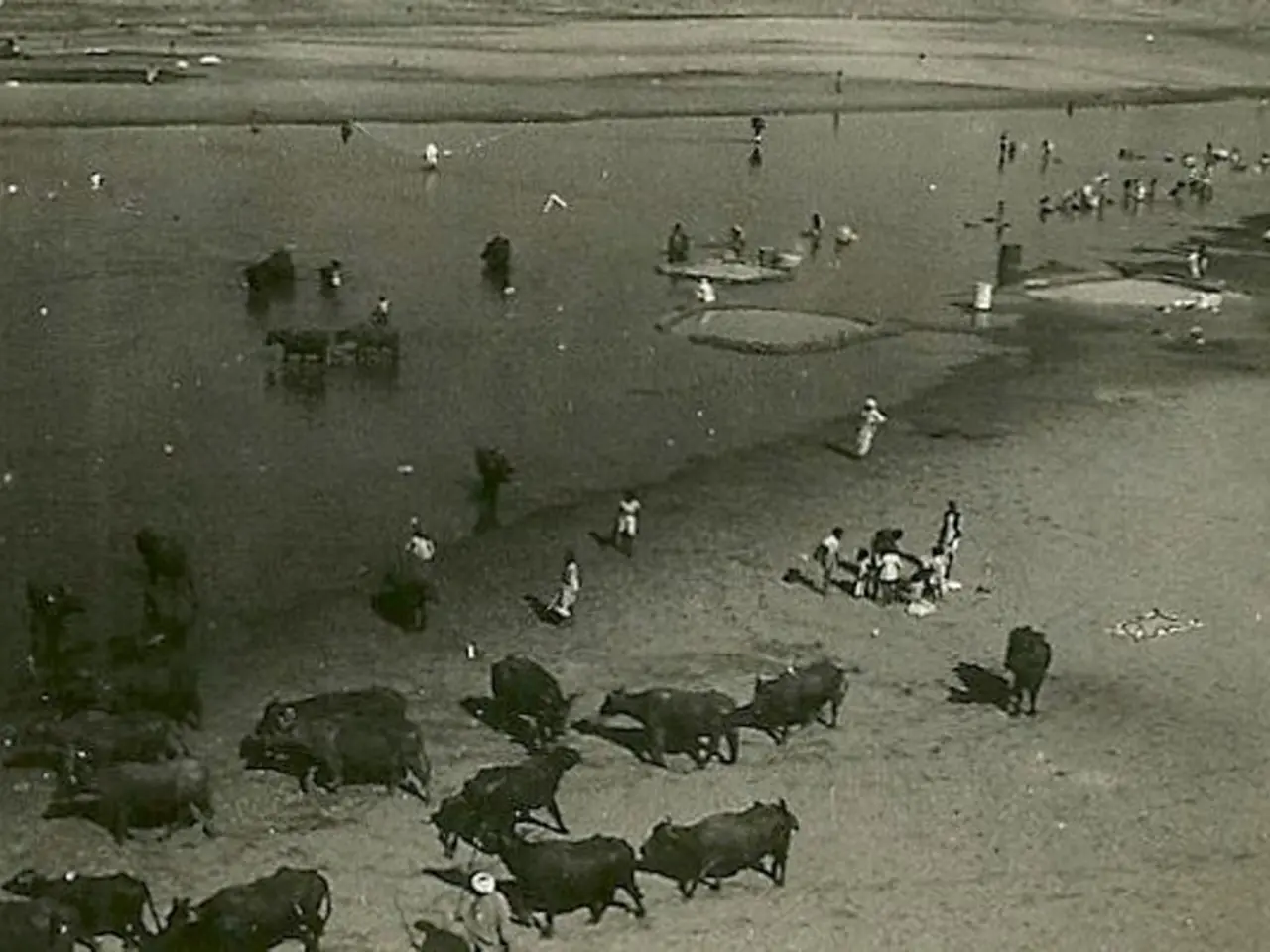Germany's Merz and Pistorius vie for control in NATO affairs
In a significant shift in its role within NATO, Germany, under the leadership of Chancellor Friedrich Merz, has made recent commitments and plans for strengthening defense capacities, positioning it as a leading force in European security.
## Recent Commitments
At the NATO Summit in The Hague in June 2025, Merz announced Germany's intention to increase defense spending to 3.5% of GDP by 2029, six years ahead of the previously agreed target of 2035. This commitment aligns with NATO's goal for member countries to invest at least 5% of their GDP in defense. Germany's defense spending for 2025 is set to reach €86 billion, more than double the 2019 expenditure, with plans to exceed €150 billion annually by the end of the decade.
## Plans for Strengthening Defense Capacities
Germany is rapidly modernizing its military under a new rearmament directive. This includes the procurement of advanced air defense systems, fighter jets, tanks, and drones. Merz has pledged to make major acquisitions for the Bundeswehr in a way that strengthens the German and European defense industry.
Germany is also deploying forces beyond its borders for the first time since World War II, with an armored brigade permanently stationed in Lithuania to support NATO's Eastern flank against Russian aggression. The country is assuming a more autonomous and assertive role in European defense, partly due to uncertainty about the long-term U.S. commitment to NATO.
## Leadership in European Security
Chancellor Merz has emphasized Germany's intention to play a leading role in European security. He stated that Germany will use new financial resources to make the Bundeswehr the strongest conventional army in the European Union. Merz wants to expand the Bundeswehr into an "exemplary" army within the NATO alliance.
In addition, Merz pledged further support for Ukraine's air defense and met with NATO Secretary-General Mark Rutte at the chancellery to discuss defense strategies. Merz is also in good exchange with US President Donald Trump regarding the potential delivery of a larger weapons system, a Patriot air defense system, to Ukraine.
These developments indicate a significant reorientation of Germany's defense policy, elevating its status as a key player in NATO and European security. The Russian attack on Ukraine has silenced the question of NATO's relevance, and alliance defense is back at the forefront. The "Coalition of the Willing," the allies of Ukraine, have united, and Germany, under Merz's leadership, is ready to defend every inch of NATO territory if necessary.
- In light of the recent commitments, Germany, led by Chancellor Friedrich Merz, intends to close the gap between its defense spending and NATO's goal by investing significantly in defense policy-and-legislation, thus positioning itself as a key player in war-and-conflicts.
- In a bid to strengthen defense capacities, Germany is actively modernizing its military politics, focusing on the procurement of advanced weaponry, and is deploying forces beyond its borders, potentially closing the chapter of its historically peaceful foreign policy.








